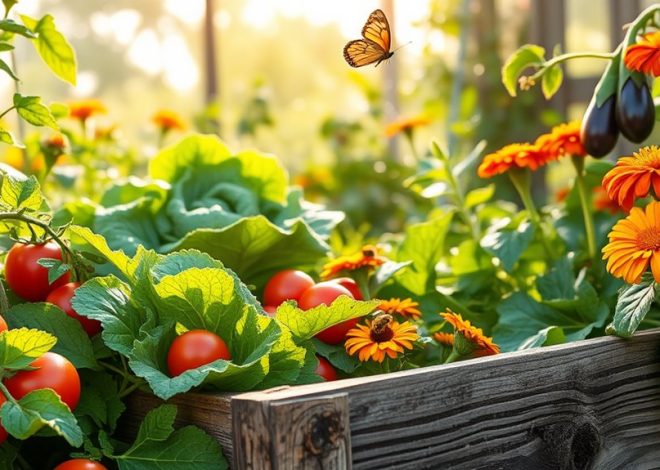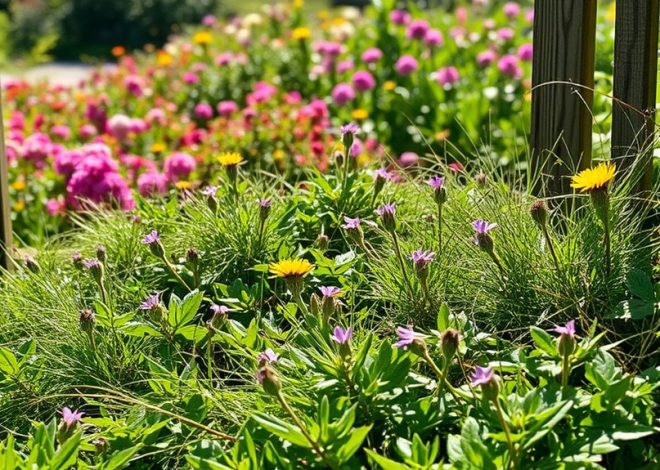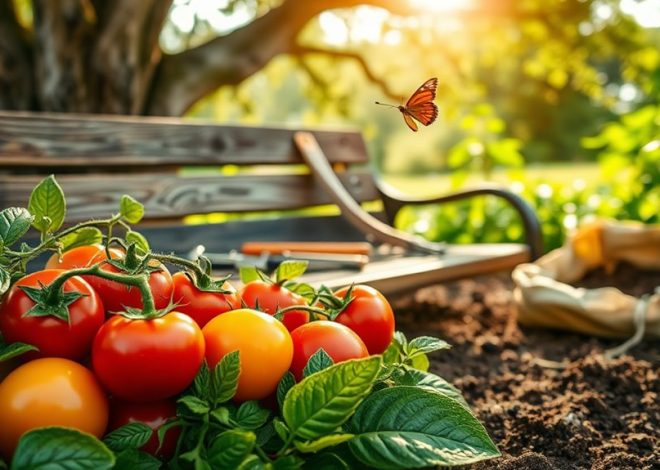
How I Reuse Kitchen Scraps to Feed My Garden
How I Reuse Kitchen Scraps to Feed My Garden
Did you know that nearly 30% of the food we buy ends up as waste? Instead of tossing those kitchen scraps, you can turn them into a valuable resource for your garden. By composting vegetable peels, eggshells, and coffee grounds, you not only reduce waste but also enrich your soil. Curious about the best ways to transform your kitchen leftovers into garden gold? Let’s explore the practical steps to get started.
Key Takeaways
- Collect vegetable peels, coffee grounds, and eggshells to create nutrient-rich compost for your garden.
- Layer green kitchen scraps with brown materials like dry leaves to enhance decomposition.
- Use crushed eggshells to add calcium to the soil and prevent blossom end rot in plants.
- Incorporate coffee grounds into garden beds to boost nitrogen levels and improve soil fertility.
- Regularly turn your compost pile to aerate it and speed up the breakdown process for dark, crumbly compost.
Understanding Kitchen Scraps and Their Benefits
Reusing kitchen scraps can be a game-changer for your garden, providing both nourishment and sustainability.
You mightn’t realize it, but everyday items like vegetable peels, coffee grounds, and eggshells can enrich your soil and reduce waste.
When you reuse kitchen scraps, you’re not just feeding your plants; you’re also promoting a healthier ecosystem.
For instance, coffee grounds improve soil structure, while eggshells add calcium. Additionally, incorporating composted kitchen scraps into your gardening routine can significantly enhance soil fertility.
By incorporating these scraps into your gardening routine, you save money and contribute to a greener planet.
Start collecting and reusing kitchen scraps today, and watch your garden thrive like never before!
Composting: The Ultimate Kitchen Scrap Solution
Have you ever wondered how to turn your kitchen scraps into a valuable resource for your garden? Composting is the answer! By collecting vegetable peels, coffee grounds, and eggshells, you can create nutrient-rich compost that enriches your soil.
Start a compost bin or pile in your backyard; it’s simple and eco-friendly. Layer green materials (like scraps) with brown materials (like dry leaves) to encourage decomposition.
Turn your compost regularly to aerate it, speeding up the process. In a few months, you’ll have dark, crumbly compost ready to nourish your garden, reducing waste while boosting your plants’ growth. Additionally, composting reduces landfill waste, which is a significant environmental benefit. What’s not to love?
Using Vegetable Peels and Cuttings
You can turn your vegetable peels and cuttings into valuable resources for your garden. Composting these scraps enriches the soil, while certain cuttings can be regrown to create new plants. For instance, you can regrow herbs from kitchen scraps, which allows you to enjoy fresh flavors while minimizing waste.
Composting Vegetable Peels
Wondering how to turn your vegetable peels and cuttings into a nutrient-rich compost? Start by layering your scraps with browns like dry leaves or cardboard. This balance helps speed up decomposition. Here’s a quick guide:
| Vegetable Peel | Nutrients | Composting Time |
|---|---|---|
| Carrot peels | Vitamin A | 4-6 weeks |
| Potato skins | Potassium | 3-5 weeks |
| Onion skins | Antioxidants | 5-7 weeks |
| Cucumber scraps | Silica | 3-4 weeks |
| Broccoli stems | Fiber | 4-6 weeks |
Keep turning your compost for best results, and soon you’ll have rich soil for your garden!
Regrowing Kitchen Scraps
After composting your vegetable peels, consider taking it a step further by regrowing some of your kitchen scraps.
You can easily revive green onions, lettuce, and celery.
Simply place the root ends in a shallow dish of water, ensuring the roots are submerged while keeping the tops above.
Change the water every few days, and watch them grow!
For herbs like basil or mint, place cuttings in water until roots develop, then transfer them to soil.
This method not only reduces waste but also provides fresh produce right from your kitchen scraps, making your gardening efforts eco-friendly and rewarding.
Nutrient-Rich Fertilizers
Did you know that vegetable peels and cuttings can transform into nutrient-rich fertilizers for your garden?
Instead of tossing them, you can enrich your soil with their natural goodness. Here’s how:
- Banana Peels: Packed with potassium, they boost flowering and fruiting plants.
- Carrot Tops: These contain nitrogen, promoting leafy growth in your greens.
- Onion Skins: Rich in antioxidants, they help ward off pests and enhance soil health.
Simply chop these scraps, bury them in your garden, and watch your plants thrive while minimizing waste. It’s a win-win for you and the environment!
Eggshells: A Natural Source of Calcium
Eggshells are a fantastic, natural source of calcium that can benefit your garden immensely. By incorporating crushed eggshells into your soil, you’ll help strengthen plants, improve growth, and prevent blossom end rot in tomatoes and peppers. Plus, it’s an eco-friendly way to reduce waste! Additionally, eggshells can be used to grow resilient plants from kitchen scraps, making them a versatile addition to your gardening routine.
| Benefits | Application | Tips |
|---|---|---|
| Strengthens plants | Mix into soil | Rinse before use |
| Prevents diseases | Sprinkle around roots | Crumble into small pieces |
| Enhances soil | Add to compost | Store in a jar |
Start saving those eggshells today!
Coffee Grounds: Boosting Soil Fertility
Have you ever considered how your morning coffee could benefit your garden?
Coffee grounds are rich in nitrogen, making them a fantastic addition to your soil.
By reusing these scraps, you not only nourish your plants but also reduce waste. Additionally, incorporating coffee grounds into your garden can help enhance soil quality, which promotes overall plant health.
Here’s how you can effectively use coffee grounds:
- Mix with Soil: Incorporate grounds into your garden beds for improved fertility.
- Create Compost: Add them to your compost pile to enhance nutrient content.
- Repel Pests: Sprinkle grounds around plants to deter pests like slugs and snails.
Creating a Sustainable Garden Ecosystem
Using kitchen scraps like coffee grounds not only enriches your soil but also contributes to a more sustainable gardening approach.
By composting vegetable peels, eggshells, and other organic waste, you create nutrient-rich compost that feeds your plants naturally.
This practice reduces landfill waste and cuts down on chemical fertilizers.
Incorporate natural pest deterrents, like crushed garlic or onion scraps, to protect your plants without harmful chemicals.
Additionally, planting companion plants can enhance biodiversity and promote soil health.
Banana peels, rich in potassium and phosphorus, can enhance plant growth when added to your compost or directly to the soil.
Embrace these eco-friendly methods to cultivate a thriving garden ecosystem that benefits both your plants and the environment.
Your garden will flourish sustainably!



